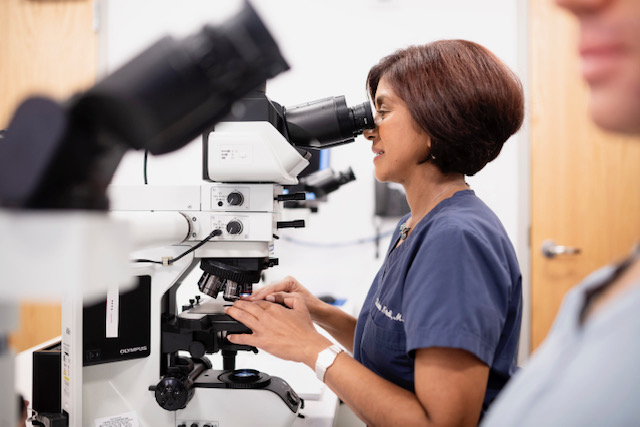Women’s Health Career Development Award
Expand Your Horizons in Women's Health
The Women's Health Career Development Award (CDA) is intended to focus on women’s health issues where further research is needed. Funding is available for research in the areas of women’s health issues, which range from disorders that affect primarily women, such as lupus and scleroderma, to the effects of hormones and environmental factors on the skin and cutaneous aging.

Know Before You Apply
All Foundation-funded research must be conducted in the U.S. under the sponsorship of a department/division of dermatology that is ACGME-approved for training in dermatology. Applicants must meet the DF’s general eligibility requirements, in addition to award-specific requirements presented on or before the time of funding. Applicants from minority populations are encouraged to apply.
The DF encourages applications concerning health issues impacting applicants from minority populations, including, but not limited to, racial minorities, sexual ¬ gender/LGBTQ minorities, and underserved/disadvantaged populations.
Am I eligible?
If you meet all of the requirements below, you may be eligible to apply for the Women’s Health Career Development Award.
- MD; MD, PhD; PhD; or DO degree
- Appropriate initial training in biomedical research (i.e., two- to three-year fellowship or postdoctoral training)
- Junior faculty member in a dept./div. of dermatology (through Asst. Prof. level)
- Proposed research focuses on women’s health issue (see above)
- Junior investigator in the early stages of academic career
- Demonstrates a strong commitment to skin research
- Strong institutional commitment for individual’s career development
Application instructions are available on the Career Development Awards page.
Featured Award Recipient
Elucidating the Role of Regulatory T Cells in Protecting Cutaneous Epithelial Stem Cell Niches
This research will investigate the mechanisms that regulatory T cells (Tregs) use to protect epithelial stem cells (ESCs) from autoimmunity in a novel experimental model of scarring alopecia. Additionally, we will comprehensively define the immunophenotype and spatial relationship of Tregs and ESCs in healthy and diseased human skin. These lines of investigation have the potential to identify novel therapeutic strategies to treat alopecias and inflammatory dermatoses.

Jarish Cohen, MD, PhD
University of California, San Francisco
Women's Health Career Development Award
Award Recipients | Women’s Health Career Development Award
Michal Kidacki, MD, PhD
Yale University School of Medicine
TIGIT Signaling in Hidradenitis Suppurativa
Erin Theisen, MD, PhD
Harvard University, Brigham and Women's Hospital
Granzyme K in Autoimmune Skin Disease
Jeffrey Gehlhausen, MD, PhD - Year 3
Yale University School of Medicine
Characterization and Validation of Type I Interferon-driven Lupus Pathology

